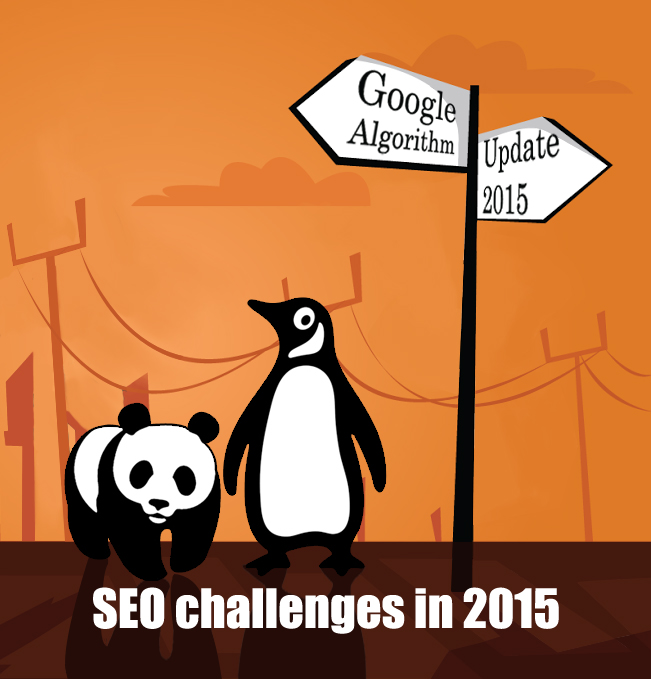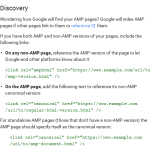SEO has come a long way since its inception. Search Engine Optimization is an ever evolving science. To stay at the top of Google search demands deep understanding and in-depth knowledge of SEO guidelines and practices. Remaining aware of the changes and implementing those changes with dexterity is one of the key factors to stay high in Google search. Providing engaging and original content still remains an impervious principle for SEO and it will continue to be so. Keyword stuffing, track the ranking, link schemes, more link high ranking and other SEO tactics which have reigned so far are no longer considered the best SEO practices. Constant alterations in Google algorithm and incorporating the latest features in social platforms keep the digital marketers on their toe.
In 2015, earning natural backlinks can be a tough challenge for most of the internet marketers. Gaining natural backlinks have been an important not so discussed SEO strategy so far. A readable, creative and sharable content is a significant technique to earn natural backlinks for a blog or a website. Let’s dig into the matter a bit more extensively. The more you create link bait content the better you get backlinks for your blog. The how to types, breaking news types, infographics, viral videos, event coverage types, list types, newsworthy topics, case studies etc are some of the crucial link baiting possibilities to explore in terms of blogging. I have already outlined few important strategies to gain natural back links in my earlier post ‘’ A content strategy to acquire natural backlinks’’. Connecting with the leading bloggers, focusing on social media and reaching out to the brand advocates are the principal link building strategies of 2015 preceded by remarkable content. So relationship building gets more preference to plain link building in 2015.
Apart from compelling contents, frequent participation in conferences and events and earning sponsorships can provide natural back links for your webpage. Creating unique untold story which creates reader’s attention and reaching out to fellow influencers can also help you to earn natural back links.
Semantic search/SEO has overhauled keyword search with the advent of Google Hummingbird update 2013. Prior to Panda and Hummingbird, keyword rich articles were the top priorities for webpages. Then quantity got priority over quality. Well, now this practice has taken a back seat in SEO and it alone won’t fetch you what you want. The intent and contextual meaning of the words an online surfer is employing in his search is more important than mere keywords in the current scenario. Here’s where semantic search is beating keyword search. Semantic search also uses synonyms of a particular search term, location, specialized and generalized queries and word variation as other important considerations of a search. Hence the objective of semantics is to provide the most relevant search results to its online visitors. Adapting the new strategies of semantic search for content optimization can be quite challenging for many entrepreneurs this year.
Local mobile SEO being top priority this year, if you are interested in getting the major influx of visitors, concentrate on local search (this is of course relevant to businesses that serve their domestic market). To draw maximum prospective visitors to your business, make your content and webpage local search friendly (not to mention, mobile friendly! Don’t forget to consider your blog, store, and other micro sites while testing for mobile compatibility). This niche strategy would be the main concern for most business owners to reap the optimum benefits of Google’s upcoming revision of its mobile search algorithm. With constantly evolving new technologies, brands and businesses, 46% of users are more comfortable in mobile product research on their way back home from work, lounging in shopping mall or just casually surfing before an office presentation. This “on the move” net surfing surge makes local search more relevant for majority of the population. On the other hand, Google is conducting extensive research on the location and search history of its users to provide the best location specific search results to boost local businesses. So if you are geographically close to your searchers, you can get some help to compete with a company which has a wider geographical presence. Therefore, in a nutshell businesses which fail to acknowledge the importance of local and mobile search can expect a dip in their visitor base, especially from April 21st when Google launches its next algorithm update.
A mobile friendly website is not sufficient to keep up with the rise of mobile users. The tectonic shift of mobile usage surpassing PC usage in the recent landscape, a mobile app or a responsive site is the most basic criterion in order to acknowledge the growing mobile crowd. Just like the Search engine optimization boom over the last decade, it has just matured and evolved into Mobile SEO. So, what does it take to optimize your site for mobile search? A mobile-first content strategy is an important tool for this process, while at the same time it is a challenge for most digital marketers. Short and precise content, with mobile friendly formatting offers the best experience for visitors on hand held devices. The challenge is, long and in-depth content have been generally found to rank higher on Google search. For digital marketers targeting mobile users, it is therefore more important to focus on developing attention-grabbing titles and lead-ins, along with short and to-the-point content. With limited space and time to capture mobile leads, a marketer has to be more meticulous in coming up with ways to attract more visitors quickly. Research the kind of content that your audience visits more often and spends time on, the medium of interaction, and the level of engagement your site generates. These are a few factors that you should be focusing on.
The above points should provide you an idea as to what to expect this year and what your peers in the industry are experiencing, as we speak. Additionally, these are points to ponder on so you can steer your way out with some valuable conversion optimization tactics to overcome the upcoming Google update. And as Matt Cutts says, keep working on creating a good website rather than focusing on building an optimized web presence. Internet marketers can supply information to WikiData so that Google can access information to boost its knowledge graph. WikiData gets priority to Freebase. Other factors like giving lesser importance to ranking tools, concentrating on location based ranking and analyzing traffic and conversion metrics should be the key look outs for marketers this season.


 (12 votes, average: 4.67 out of 5)
(12 votes, average: 4.67 out of 5)







